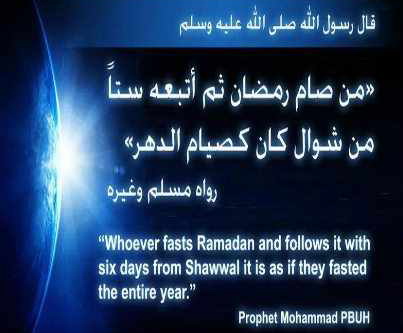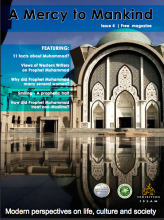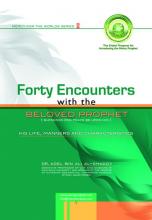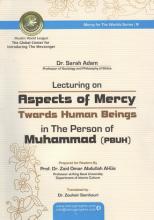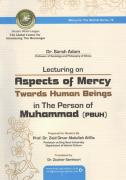The Prophet of Mercy Website
Muslim World League - Global Commission for Introducing the Messenger
This is Dr. Adam’s Fifth Lecture, which we are following and recording. She will continue, as she intimated, her talks on the aspects of the mercy of the Prophet of Mercy, pbuh, towards his companions.“Dear audience, I welcome you all and thank you for coming.” Dr. Adam began her lecture with these words and went on to say,“ If the Prophet of Mercy, pbuh, did not take advantage of his companions in such a manner as to burden them with what they could not bear; more clearly, if he did not consider them as fuel for the battle, or a means to achieve certain ends, by way of mercy to them, as we have seen. This is because, for him, they were the battle for whom he was fighting, and not a fuel for the battle, nor had they ever been a tool to be taken advantage of by him, in the sense of the negative effects we see in the biography of great leader.If this was the case, and it was in fact the cse, then this means that he was keen on making things easy for them and on being merciful to them, in all their daily affairs, despite his certainty of the great love of him by his companions and their strong determination to obey him and emulate all that issued from him, whether in sayings or deeds.He has made mercy in all its aspects a prominent characteristic in all the affairs of their life, whether in respect to their relations with their Almighty God, with the Prophet, pbuh, or to their relations with one another, or even with their non-Muslim relatives.
The first manifestations of mercy are the advocating and embellishment of it, through perpetually explicit statements, to the end that it would become implanted in their souls at all times, as a safety belt, not to be bypassed or ignored.It may not be possible to quote all the relevant statements, but we shall provide mere samples in this context. We begin with the Quranic verse, “God intends every facility for you. He does not want to put you to difficulties.” (Al-Baqarah,185). The confirming of facility and the negation of difficulty are among the most evident manifestations of mercy.Another relevant verse is, “He has imposed no difficulties on you in religion” (Al-Hajj, 78). What mercy is greater and more manifest than that which leads to the lifting of difficulties and hardship from the path of the followers of the Prophet of Mercy, pbuh, and the ease granted by God Almighty is a manifest mercy: “God doth wish to lighten (your burdens)” (Al-Nisaa’, 28), whatever such lightening may be or of whatever form.God Almighty has informed the believers, and the Prophet before them, that their Prophet is most kind and merciful, in his description of him: “Now hath come to you a Messenger from amongst yourselves . It grieves him that ye should suffer, ardently anxious is he over you: to the believers is he full of compassion (ra’uufun) and merciful (raHiim).” (Al-Tawbah, 128).
I have looked into what the exegesists have said about the meaning of the above verse and the distinction between “ra’ uufun” and “raHiim” and discovered something very beautiful, which I propose to summarize for you. Some scholars have said that “ra’fah” (from which “ra’uufun” is derived) is the protection from harm, while “raHmah” (from which “raHiim” is derived ) is the embellishment of the soul with all that is good and beneficial.Some have said that the difference between “ra’fah” and “raHmah” is an intensification of mercy, a special mercy that drives away what is harmful, as in the verse, “Let not compassion move you in their case, in a matter prescribed by God.” (Al-Nuur, 2); while “raHmah” is a more comprehensive term. It includes the foregoing meaning and involves, as well, the provision of bounties and boons.[1] God Almighty has combined for the Prophet of Mercy, pbuh, these two attributes in this manner in order to clearly reveal the great wisdom for the sake of which He has attributed to the Prophet, pbuh, these two qualities. Such attributes create in the souls of his followers security and reassurance and make them realize that they follow him whom God has made compassionate and merciful and whose conduct is subject to these two attributes which protect them from harm and hardship and bring to them security, goodness and happiness.
The Prophet, pbuh, was aware of the implications of this description and said expressly to his companions; “I am in fact a mercy granted to all creatures.[2] I find that the word “granted” in this tradition makes one feel the beauty of mercy and humanity’s need for it, as though it was something given as a gift given by a person to his beloved ones. This is because God loves His creatures. Therefore, He sent them as a gift: Prophet Muhammad, who was aware of this great bounty and was keen on the application and practicing thereof. The Prophet confirms this description in another tradition: “I am in fact sent as a mercy.”[3]The two aforementioned authentic traditions indicate that there is a close connection between mercy in all its manifestations and the person of the Prophet, pbuh. Hence, it is not conceivable that any of his sayings or deeds do not reflect mercy as a most prominent characteristic of his qualities.It is proper to point out in this context that this mercy, in all its manifestations and forms, is not confined to this group of believers who surrounded the Prophet, pbuh, for it may be surmised that he has singled them out with this very special position for obvious reasons that are imposed by companionship, common life and his intention of keeping them and taking advantage of them, and so on.
This is by no means the case. For all the mercy conferred on his companions was applicable to those who came after them. This is confirmed by sayings, guidance and deeds. Thus, it happened once that some have asked the Prophet, pbuh, about this very matter, and his question was a blessing, because the reply came as good tidings.Thus, one of the companions of the Prophet, pbuh, has stolen a kiss from a woman and told the Prophet about that. So a revelation was sent, “And establish prayer at the two ends of the day, and at the approaches of the night, for those things that are good remove those that are evil. This is a reminder for the mindful.” Hud, 114). So, the man said, “O, Messenger of God, does this apply to me?”, to which the Prophet replied , “”It is to all my people.”[4]In this statement, which is all mercy, the Prophet, pbuh, confirms that his pity towards his followers over the future hundreds of years is no less than his pity and mercy for those who lived with him and saw him morning and evening.
Dear audience,
In my readings, and research, I have collected a number of rules or features that show how mercy imposes itself on the duties and affect them directly, as will be shown by surveying these manifestations.[5]
1. &nbs
2. &nbs
3. &nbs
4. &nbs
Dear audience,
I would like to quote and stress a matter in this context that is connected with some aspects of these lectures. It seems to be academic and specialized more than being cultural and common. But I assure you that this is not intended for its own sake.The fact is that it is necessary to indicate that the mercy shown by the Prophet is an integral edifice that also has its own foundations, and manifestations, the factors of whose survival being inherent therein, and entices people in every place and at every time to turn thereto. This is unlike the manifestations of mercy that were associated with some great figures, which was no more than a passing word, a temporary attitude or a personal conduct that is not capable of survival and does not contribute to the building of a human civilization.It is worth indicating here that the Prophet, pbuh, was not satisfied with proclaiming these provisions to his companions, but was also keen on promoting them in his words, as when he was asked by his companions in respect of one of the licenses in the performance of worship and he said, “It is a charity which He has bestowed on you; so, accept His charity”, and in his deeds, when he was traveling with his companions during the month of Ramadan. Thus he asked for some water and raised it upwards with his hands so that people can see him and drank thereof[6]. It was as though the aim was to train men and imbue them with mercy to the point of its becoming second nature in them.This method, which the Prophet, pbuh, has used has emanated from his intense mercy to his companions and those who would come after them, the purpose being to teach them not to be too harsh on themselves and think that refraining from implementing such licenses was better. This has prompted the Prophet, pbuh, not to confine himself to words, but to exemplify the provision in different methods, and sometimes in anger. He went on to say in reproach of whoever does not benefit from that blessing which was granted to them as a gift from the Merciful God through His Prophet, who is also a donated gift. Hence Mercy donates nothing but mercy, and it is a mercy if we rest for a while.Welcome, dear audience. I would like, in the second half of this lecture, to admit that I am greatly very pleased with your coming. I was afraid your number would diminish after several lectures, particularly the number of those who do not I intend to to submit the attendance certificate that is given to them for submission to an academic institution, for benefiting therefrom. I thank you most heartily and hope that this mutual trust and confidence will continue and intensify between us, because it is a rare and precious thing, particularly at a time when many are afflicted by a crisis of trust in may areas.
Dear audience:
We are still talking on the manifestations of the mercy of the Prophet, pbuh, towards his contemporary companions and those who come hundreds of years later.But before I begin, I would like to give the opportunity to those who wish to present the examples which I proposed that you bring in the previous lecture, on the mercy of the Prophet, pbuh, towards his companions.One of the audience raised his hand. He was sitting on a mobile chair. Dr. Adam smiled and listened to him intensely. He said, “I have read about an anecdote in which the Prophet, pbuh, saw an old man who was walking with difficulty and leaning on his two sons. The Prophet asked what was wrong with the old man, and he was told that the old man had vowed to go on pilgrimage on foot. The Prophet expressed dissatisfaction with this and said that God has no interest in the old man’s torturing of himself, and ordered him to mount.[7]Dr. Adam thanked the speaker and said, “I suggest that we vote on the examples we hear by raising hands”, and the audience agreed. She invited those who approve the inclusion of this anecdote in the examples and the majority of the audience raised their hands in approval.
She found in this an appropriate opportunity to turn to the speaker once more, in view of his special condition, and thanked him, saying jokingly, “You have won first prize in this lecture. It is the trust given to you by the audience” He showed great pleasure and thanked her and the audience. Then she gave the floor to another speaker, who said, “I have found a story similar to a previously mentioned one, namely, that a companion, known by the name of Abu Dharr, came to Mecca in the early days of the Prophet’s preaching and proclaimed his conversion to Islam, proposing to stay with the Prophet, pbuh. But the Prophet, pbuh, advised him to return to his country, because he would not be able to bear the difficult situation in Mecca. He said this out of mercy and pity for Abu Dharr.”[8] “I believe that the motive behind this advice from the Messenger, pbuh, was his mercy for him. When searching for more information on this companion, I found that the Prophet, pbuh, told him on a certain occasion that he was a weak person[9] , which confirms what a I have mentioned.”
Dr. Adam turned to the audience for their views and they approved the inclusion of this example among those indicating the mercy of the Prophet, pbuh, towards his companions.Dr. Adam asked the audience if there was anyone who desired to add anything to what was said. A female raised her hand and said, “I have consulted the verse that deals with the shortening of prayer, and looked for the beautiful gesture inherent therein and I think I have found it.”Dr. Adam was pleased at that and said, “Please go ahead,” and the woman said, “I have read in the books on exegesis the following: that Ya’la ibn Omayyah has said, ‘I have said to Omar bin Al-Khattab that God said, “for fear the unbelievers may attack you”, (although) people have become secure?” Omar bin Al-Khattab said he was just as surprised as he was, and he asked the Messenger of God, pbuh, and he said, “it is a gift from God; so accept His gift.”[10] Dr. Adam quickly replied, “You are quite right; this is what I wanted to say.”This is because the reduction of the number of cycles of prayers at first was on account of the Muslims’ fear of attack by their enemies while they were praying during travel or when at war.Some of the companions had expected that such provision would be revoked after the threat by the enemies was over and the Muslims became secure.But the Prophet, pbuh, told them that even after the establishment of security and the absence of danger the provision remained applicable as a gift and bounty from their Lord. This is an indication that mercy is intended to be applicable even in the case of religious duties.
Dear audience,
The gradual enactment of duties is among the most salient of manifestations of mercy that have attracted my attention and admiration in the life story of the Prophet of Mercy, pbuh. It is something the like of which I have never known. Now allow me to give you a definition of gradualness so that its meaning would be alive in our minds. Thus the Arabic equivalent of gradualness is tadarruj, which is derived from the verb daraja, which means the beginning of walking step by step, as when the verb is used to indicate the first steps of children, when they begin to walk slowly and cautiously.[11] It is this meaning of gradualness which we have in mind in this lecture, which indicates “the gradual approach to some thing until the intended objective is realized, pursuant to special legitimate methods[12] A close look at the directives of the Prophet of Mercy, pbuh, to his followers will reveal very clearly this approach of gradualness. He used to take them by the hand, as it were, just as an affectionate mother takes her child by the hand when teaching him to walk its first steps.If it is mercy that prompts a mother to treat her child so gently when teaching him how to walk for fear it might stumble and fall, which all people can witness for themselves, then we can see that it is the same mercy that made the Prophet adopt a gradual method in establishing religious provisions and duties. You are all aware that when a habit is rooted in a human being, it would be difficult to eradicate it, or even to modify it. It is as though, as some writers on ethics have said, that a habit sinks its roots deeply in the nerve system[13]. This means that gradualness in legislation is gradualness in ethical education.
Thus the Prophet of Mercy, pbuh, has preached this religion and the duties and guidance it involves and sought to liberate humanity from the negative habits, the lusts to which some were victims ever since they were young up to the time when they grew old. Therefore, it was imperative that these facts be taken into account, in the quest that aims at rectifying and correcting the course that was injudiciously followed by humanity that had gone astray.However, as it is difficult to trace the manifestations of gradualness in the approach of the Prophet, because they are so numerous and varied, allow me to restrict myself to just one case, which I believe is a clear indication of what we have said. This is the prohibition of intoxicants.I would like to be cautious and indicate that dealing with this matter is not an end in itself. I have brought it up because it is a means to an end, and an example of an approach. I say this because I do not propose to deal with such matters in my cultural lectures. But it is necessary to reveal the status of mercy in this matter, and its role in dealing with many of the problems that beset communities, in a style that may be beneficial to humanity at present, just as it was beneficial for it in the past.I am certain that intoxicants have plagued every age and go back to hundreds of years, and I fear to say “if not thousands of years”, lest I should be required to provide evidence, which I do not possess at present. There is no doubt that the partaking of intoxicants is a bad habit, by all measures and that there is hardly a community that has been spared this bad habit from time immemorial. This is because it has been transmitted from one generation to another and has sunk its roots deeply in the nervous system of people, indeed in the very being of those who had become used and addicted to it.
The Prophet of Mercy, pbuh, has come into an environment that extols alcoholic beverage and prides itself on partaking of it, to the point that it can be said that there was hardly a single person who had not engaged in it, barring a very few who had deviated from what was customary during their life. I can mention Abu Kakr Al-Siddiaq, the first Khalif of the Prophet, pbuh, who had never tasted it, be it before or after Islam.Evidence of the strong influence of intoxicants on people, and their domination of those addicted to them, can be seen in the story of the great poet Al-A’sha, who admired the message of the Prophet of Mercy, pbuh, and decided to go to him and declare his conversion. However, Quraish feared that if he entered Islam and praised the Prophet, pbuh, in his poetry, people would hasten to believe in him, in view of the well known fame of this poet.Therefore, the Qurashites decided to try to dissuade him from doing so. So, Abu Sufian, the then leader of Quraish, said to him, “Where are you heading, O, Abu Basir?” and he replied, “I am heading to your man in order to declare my conversion to Islam.” Aby Sufian said, “”But he prohibits many things if you do convert to Islam.” When he asked about such prohibitions, Abu Sifian said, “the Prophet forbids adultery,” to which the poet commented saying that he did not mind that, and asked about further prohibitions. Abu Sufian added the prohibition of gambling, to which the poet said he hoped that the Prophet would compensate him with something for gambling. Abu Sufian then mentioned usury, and the poet said that he had never been a lender or a borrower, so he would not be affected by that. Then Abu Sufian mentioned the prohibition of intoxicants, and the poet paused and said he would return to his country and drink for the remaining part of the year and then would come back to the Prophet. So he returned to his country and died on his way.[14]
It is not conceivable, dear audience that the Merciful God would send down a religion, the most prominent of whose aims is not the prohibition of intoxicants. But how to achieve this and rid society of their endless mischief. Mercy requires that intoxicants be banned, and the same mercy requires that the status of intoxicants in the view of people be considered. Therefore, it was necessary to adopt a well conceived plan for the achievement of this noble objective. Such plan should not involve the immediate and absolute prohibition; otherwise, it would not be possible to convince people to obey.This has been appreciated by lady Aisha, the spouse of the Prophet, pbuh, who said, “The first revelation was a Surah that mentioned paradise and hell, and when people entered Islam, provisions governing what is halal lawful) and haram (unlawful) were revealed. Had the prohibition of intoxicant beverages been revealed first, people would have said they would never quit them…”[15]Lady Aisha’s tradition reveals something of great importance, namely, the phenomenon that is evidenced by the actual facts and confirmed by actual events, which indicates that the Quranic provisions concerning duties, halal and haram, were revealed only after faith had become deeply rooted in the souls of the believers and people had become fully convinced of this religion and their hears had felt the extent of the Prophet’s mercy towards them, and his intense care for them.
Allow me to outline the features of the gradual prohibitions of intoxicants and the gradual steps through which the prohibition had gone and hope you would follow me and feel the aspects of mercy in this exposition.In the initial stages of the revelation of the Qur’an, there was a great many references to reward and punishment. Thus there was reference to the wine of Paradise and was described as being free of the negative effects in the intoxicants of this world: “.. in Gardens of delight, facing each other on raised couches; round will be passed to them a cup from a clear-flowing fountain, crystal white, of a taste delicious to those who drink(thereof), free from headiness; nor will they feel intoxication therefrom (Al-Saaffaat, 43-47). Thus wine in Paradise does not baffle the minds, does not spoil the bodies, and does not destroy those who drink it[16]; it is in paradise a delicious drink: “Rivers of wine, a joy to those who drink.”, Muhammad, 15).You may have noticed, dear adience, that the verses praised the wine of Paradise, but did not vilify the wine of this life; it may be that it left it to the companions of the Prophet, pbuh, who hear the words to make the comparison.

